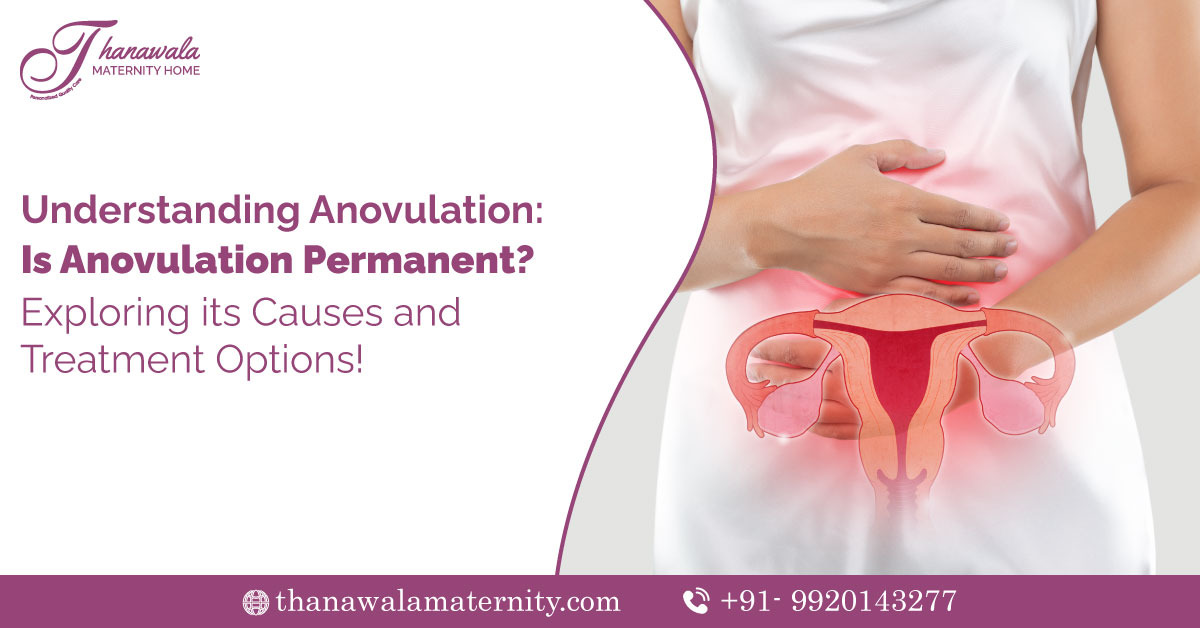Embarking on the journey toward parenthood can be a deeply personal and often challenging experience. For many individuals and couples, the intricate process of conception is governed by the delicate dance of hormones. And disruptions in this intricate choreography can lead to conditions like anovulation. Here, you can learn the basics of anovulation. You can also get answers to questions about its permanence, its causes, and treatment options, focusing on Fertility Treatment in Navi Mumbai.
Understanding Anovulation: The Basics
Anovulation, a condition where the ovaries fail to release eggs during the menstrual cycle, is a common cause of infertility. Occurring in approximately 1 in 10 women, it is a factor in nearly 25% of infertility cases. In a regular menstrual cycle, the ovaries typically release a mature egg around the 14th day, making conception possible. However, in cases of anovulation, this crucial release does not occur, disrupting the chances of fertilization.
Is Anovulation Permanent?
The permanence of anovulation depends on various factors, including the condition’s root cause. In some instances, anovulation may be a temporary glitch in the reproductive system. Stress, weight fluctuations, or illness can contribute to this temporary disruption. However, in cases where anovulation is linked to underlying conditions like Polycystic Ovary Syndrome (PCOS), hormonal imbalances, or structural issues, the condition may persist.
To navigate the complex landscape of anovulation, seeking professional guidance is paramount. In Navi Mumbai, the Thanawala Maternity Hospital emerges as a beacon of expertise and support for those facing fertility challenges. As a leading Fertility Treatment Center in Vashi, Navi Mumbai, the hospital provides comprehensive care and a range of treatment options tailored to individual needs.
Exploring the Causes of Anovulation
Anovulation can be triggered by many factors, ranging from internal health conditions to external influences. Common causes include:
- Polycystic Ovary Syndrome (PCOS): A prevalent hormonal disorder affecting up to 20% of women.
- Hypothalamic-Pituitary Axis (HPA) Dysfunction: Irregularities in the HPA system, responsible for regulating the menstrual cycle.
- External Factors: Stress, excessive exercise, and certain medications.
Treatment Options for Anovulation
The approach to treating anovulation varies based on the underlying cause. In cases where hormonal imbalances play a role, hormonal therapies may be prescribed to induce ovulation. Surgical interventions may be considered for structural issues affecting the reproductive organs. Lifestyle modifications are also crucial components of treatment, especially in cases where external factors contribute to anovulation.
Fertility treatment centers in Navi Mumbai play a pivotal role in providing specialized care. As a trusted institution for Fertility Treatment in Vashi, Navi Mumbai, the hospital offers services tailored to individual needs, including surgery, hormonal therapy, and Assisted Reproductive Technologies (ART).
Conclusion
Understanding anovulation, its causes, and available treatment options is vital for individuals and couples navigating fertility challenges. In Navi Mumbai, the Thanawala Maternity Hospital stands as a pillar of support, offering comprehensive care and a compassionate approach to fertility treatment. By seeking timely intervention and personalized care, individuals can make empowered choices on their path to conception, fostering hope and resilience in the face of anovulation.







